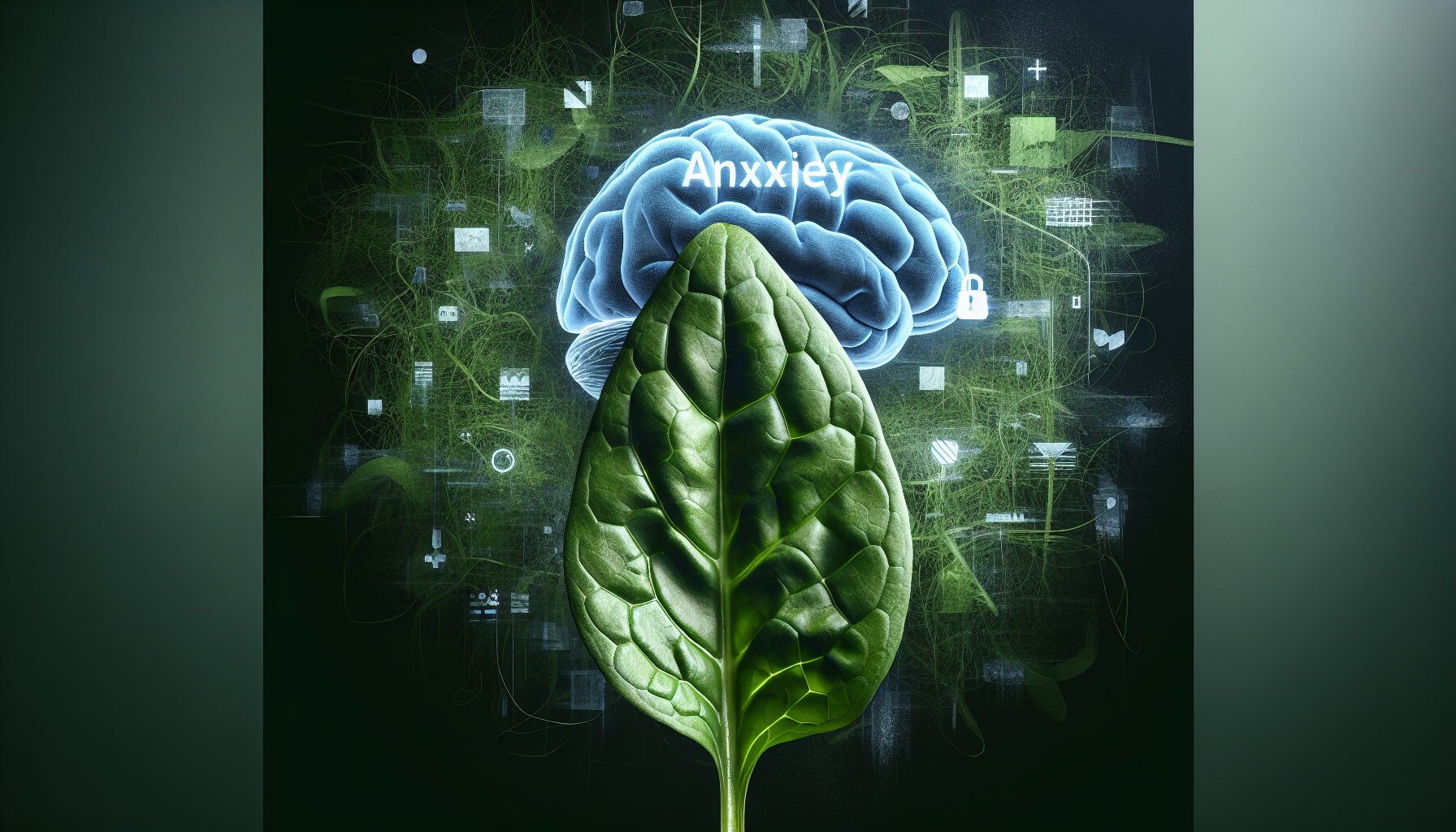Have you ever found yourself wondering how your diet influences your mood and mental well-being? You might be surprised to learn that the connection between what you eat and how you feel can run deeper than you think. In this piece, let’s investigate oxalates and their potential relationship with anxiety.
Understanding Oxalates
To kick things off, let’s talk about what oxalates actually are. Oxalates are organic compounds found in a variety of foods, especially in plant-based items like leafy greens, nuts, and some fruits. While your body can handle oxalates to a certain extent, not everyone processes them the same way.
What Are Oxalates?
Oxalates are naturally occurring compounds that can bind to minerals in your body, primarily calcium. When oxalates bind with calcium, they can form calcium oxalate crystals, which might contribute to the development of kidney stones. But there’s more to oxalates than just stones; they may influence other aspects of health as well, including your mental health.
Foods High in Oxalates
If you’re curious about which foods are high in oxalates, here’s a brief rundown:
| Food | Oxalate Content (mg per 100g) |
|---|---|
| Spinach | 970 |
| Rhubarb | 860 |
| Beets | 153 |
| Almonds | 469 |
| Sweet Potatoes | 145 |
| Dark Chocolate | 120 |
| Tea (black/green) | 50-100 |
Knowing about these foods can be a game-changer, especially if you’ve been experiencing certain health issues, mood changes, or anxiety.
The Link Between Oxalates and Mental Health
Understanding the intricate connections between diet, mood, and mental health, especially concerning anxiety, is important. Research suggests that certain dietary components might worsen anxiety symptoms for some individuals. So, can oxalates play a role here?
How Oxalates May Affect Your Mood
Oxalates might potentially contribute to anxiety through a couple of mechanisms. Firstly, when these compounds form crystals in your body, they can cause physical discomfort. Chronic pain and discomfort can contribute to an overall sense of anxiety and stress. You know how hard it can be to focus on anything else when you’re dealing with pain.
Secondly, high oxalate levels may interfere with the absorption of essential nutrients like calcium and magnesium. These minerals play a significant role in maintaining mental health. If you’re lacking these crucial nutrients, it might leave you feeling more anxious or moody.
Nutritional Biochemistry: Oxalates and Your Body
Let’s get into the nitty-gritty of how your body interacts with oxalates and what that means for your overall mental health.
The Absorption Issue
Your digestive system is complex. It’s designed to break down foods and absorb nutrients, but when oxalate levels are high, they can interfere with this process. Notably, calcium – which supports nerve function and muscle contraction – might become unavailable to your body due to its bonding with oxalates.
Gut Microbiome’s Role
The gut microbiome, which consists of trillions of microorganisms residing in your digestive tract, is crucial in influencing your brain health. Some studies show that a healthy gut can lead to better mental health outcomes. If oxalates disrupt your gut flora balance by creating an environment where beneficial bacteria struggle to thrive, it may lead to increased anxiety and other mental health issues.
Oxalate Sensitivity: Who’s at Risk?
So, who might be more vulnerable to oxalate sensitivity? Certain individuals experience heightened reactions to dietary oxalates, which can manifest as a variety of symptoms, both physical and emotional.
Identifying Symptoms of Oxalate Sensitivity
If you are wondering whether you might be sensitive to oxalates, keep an eye out for these symptoms:
- Physical Symptoms: Digestive discomfort, kidney stones, joint pain, and chronic pain.
- Mental Symptoms: Increased anxiety, mood swings, irritability, and cognitive difficulties.
Recognizing these symptoms can be the first step in connecting your diet with your mental well-being.
Relationships Between Oxalates and Anxiety Disorders
Anxiety disorders come in many forms, from generalized anxiety disorder to panic disorder. Understanding how oxalates may play a role in anxiety can shed light on dietary interventions that could help manage your symptoms.
Investigating The Anxiety Connection
Research on oxalates and anxiety isn’t as expansive as it is for other dietary components, but a few important studies suggest a potential connection. Some individuals who experience high levels of anxiety report improvements after reducing their oxalate intake.
Personal Stories and Anecdotal Evidence
Though science is essential, personal experiences can also help illustrate the connection. Many individuals have taken steps to reduce oxalate intake and have observed a decrease in anxiety levels. While this doesn’t mean oxalates are the sole cause of anxiety, it suggests they could be a contributing factor in some cases.
Dietary Solutions: Managing Oxalate Intake
If you’re considering cutting back on oxalates to see if it helps with your anxiety, you’re probably wondering how to do so effectively. Here’s how you can approach it.
Lower Oxalate Foods
First, it’s beneficial to know which foods are lower in oxalates:
| Food | Oxalate Content (mg per 100g) |
|---|---|
| Kale | 38 |
| Broccoli | 12 |
| Cabbage | 7 |
| Rice | 0.5 |
| Meat (beef, chicken) | 0 |
| Fish | 0 |
Incorporating these foods can help you maintain a balanced diet while reducing your oxalate intake.
Cooking Methods to Reduce Oxalate Content
Cooking can also help lower the oxalate content in some foods:
- Boiling: This method can leach oxalates into the water. Just be sure to discard the water afterward.
- Soaking: Soaking certain food items, like beans or grains, can help reduce their oxalate content.
Trying various methods might allow you to enjoy former favorites without the oxalate impact.
Nutritional Balance: Maintaining Essential Mineral Levels
Reducing oxalates doesn’t mean you should compromise essential nutrients. Here’s how to keep that balance.
Ensuring Calcium and Magnesium Intake
Make sure you’re getting enough calcium and magnesium. Dairy products, leafy greens (low oxalate options), nuts, and seeds can help. If you’re steering clear of certain high-oxalate sources, consider fortified alternatives or supplements after discussing them with a healthcare professional.
Supplementing Wisely
If you decide to include supplements in your diet, doing it mindfully is crucial. Talk with a healthcare provider about the right type and dosage for you to ensure you’re making informed decisions that won’t conflict with any existing conditions.
Mental Health Support: Beyond Diet
While diet plays a crucial role, it’s essential not to overlook other aspects of mental health. If you’re grappling with anxiety, considering a holistic approach might be beneficial.
Talk It Out: Therapy and Counseling
Speaking with a professional can provide strategies to cope with anxiety. Even dietary changes might not yield immediate results, but having supportive conversations can help navigate through feelings of unease.
Mindfulness and Stress Management
Incorporating mindfulness practices, such as meditation or yoga, can help ground you during anxious moments. These techniques may enhance the benefits of improved dietary choices by supporting emotional resilience.

Conclusion: The Path Forward
In summary, the relationship between oxalates and anxiety is still an evolving conversation. By remaining open to exploring your nutrition alongside mental health practices, you might uncover changes that foster better well-being. Remember, every person is unique; what works for you might not work for someone else.
Monitoring your diet and understanding how specific compounds like oxalates affect your mood can empower you to take charge of your mental health in a meaningful way. So why not give it a try? Small adjustments might yield surprising results, allowing you to experience a newfound lightness in both mind and body.




